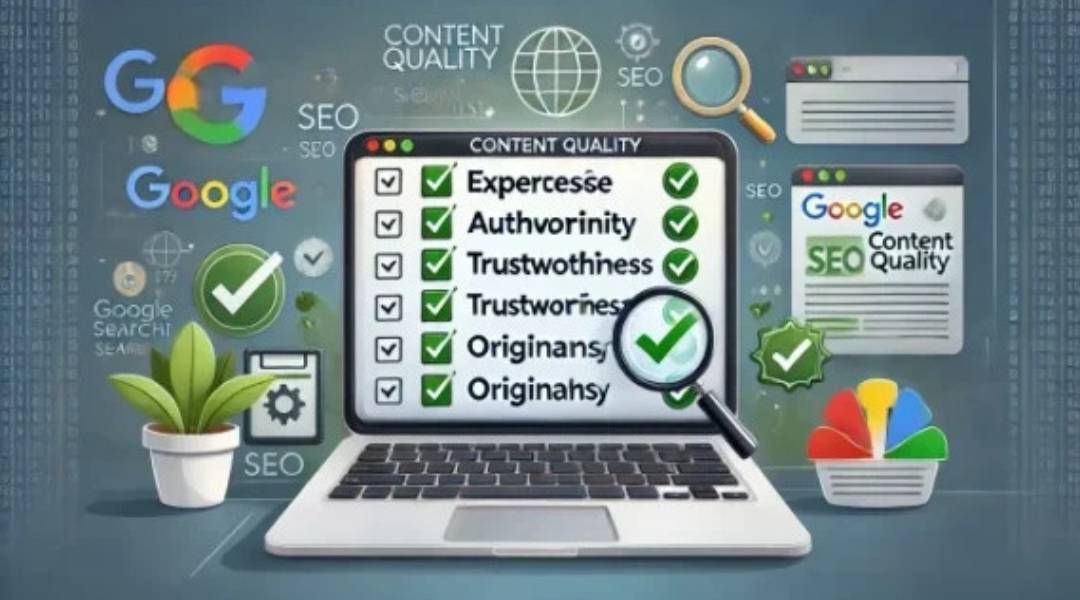Google’s algorithms are a blend of automated technologies prioritizing content that benefits searchers. Following their latest update, websites with content crafted more for SEO than user experience have seen declines. To thrive in Google’s ecosystem, understanding what constitutes high-quality, helpful content is key.
Table of Contents
According to Google’s guidelines, truly beneficial material offers unique value and information primarily aimed at readers rather than search engines. A sitewide machine learning model aids in identifying such quality by evaluating each website’s overall contribution toward providing useful answers to queries. This focus underscores the shift towards rewarding “people-first” content while penalizing pages deemed unhelpful or overly optimized for algorithmic gain.
Select Target Keywords Wisely
Choosing the right target keywords is critical for aligning with Google’s standards and enhancing your site’s ranking. Focus on relevance, selecting terms that closely match your audience’s search intent. Consider the competitiveness of keywords; highly sought-after ones might be challenging to rank for without substantial effort and high-quality content.
Look into long-tail keywords as well, which are less competitive but can attract more targeted traffic, leading to better conversion rates. Use tools like Keyword Planner or SEMrush to analyze keyword volume and difficulty level. Remember, it’s essential to integrate these chosen words naturally within your content, ensuring readability remains high.
Moreover, post-September 2023 update by Google emphasizes quality over mere SEO-driven text creation. Your material must provide value first by addressing users’ queries effectively. This is a principle central in the Google ranking algorithm.
This approach not only satisfies current guidelines but also prepares you for future updates focusing increasingly on user experience (UX) amidst evolving AI capabilities in content generation.
Optimize Meta Descriptions Effectively
To optimize your meta descriptions effectively, start by analyzing the most common search terms. Tools like Google Analytics are invaluable for identifying key phrases that potential visitors use. By incorporating these keywords thoughtfully into your meta descriptions, you significantly enhance the visibility and accessibility of your content on search engines.
Although meta descriptions don’t directly influence SEO rankings, their role in guiding users to click through cannot be overstated. Crafting engaging and compelling meta descriptions is vital; they act as a gateway to your page’s content. Use an active voice to create urgency or interest (“discover,” “explore”), thus encouraging clicks from intrigued readers.
Keeping the language simple yet aligned with the tone of your website ensures consistency across the user experience. Moreover, customizing each description ensures uniqueness—a critical factor given how competitive digital spaces can be today. Our approach post-2023 redesign involved creating tailored descriptors for over 400 web pages using pinpointed analytics-derived keywords—all within a succinct 120-158 character limit.
Regularly reviewing these elements based on user engagement data helps maintain relevance and effectiveness—key steps endorsed under Google E-E-A-T guidelines prioritizing expertise, authoritativeness, and trustworthiness in online content creation strategies.
Craft Compelling Headlines
Crafting compelling headlines is a vital step in creating content that ranks well on Google. Your headline grabs attention and entices readers to dive into your article, making it crucial for SEO success. Remember, Google’s Helpful Content System emphasizes the importance of crafting content with the reader in mind.
This means your headlines should hint at solving their problems or addressing specific needs while being intriguing enough to stand out. To align with these standards, ensure your headlines are clear yet engaging. They must reflect the unique perspective or value you’re adding based on personal experiences or expert insights—a core element Google looks for after its algorithm updates aimed at surfacing helpful human-made content.
Avoid clickbait tactics; instead, focus on accuracy and relevance to what follows in your piece. As improvements continue from year-to-year—like we saw from 2022 through 2024—so too should our approach evolve, always prioritizing user benefit above all else.
Ensure Mobile-Friendly Design
To ensure your content meets Google’s quality standards, focusing on mobile-friendly design is key. Most users now access the internet via smartphones, making this a critical factor for Google’s ranking algorithm. Your site must display well on these devices to provide a satisfying user experience and meet searchers’ needs effectively.
First-hand evidence of your website’s performance across various devices supports your credibility. It shows you understand the importance of accessibility in today’s digital world. Make sure pages load quickly, and navigation is intuitive on smaller screens as well.
By doing so, visitors will trust your content more. They’re also likely to engage with it longer, share it, or even bookmark it for future reference. Remember: A seamless mobile experience encourages readers to explore further without needing additional information from elsewhere because their queries have been satisfied comprehensively right there on your platform.
Incorporate Relevant Internal Links
Incorporating relevant internal links is key to boosting your site’s SEO performance. Think of your website as a map where each link serves as a pathway connecting content. Strategically placed links guide users and search engines through your site, establishing a structured hierarchy.
By linking to high-value, related content, you enhance page authority and visibility in search results. This method keeps visitors engaged and signals to Google about topic relevance, offering considerable SEO payoffs with meticulous internal linking practices.
Prioritize User Experience
To truly excel in Google’s eyes, making your content genuinely useful should be your top goal. This means diving deep into topics and offering insights that can’t be found just anywhere. Think of incorporating case studies or sharing unique research findings to add real value for your audience.
In addition, keep the expertise behind what you write at the forefront; if possible, have experts either contribute to or review your content before it goes live. Remember, too, that how you present information matters greatly. Craft pieces that are enjoyable and easy for individuals to get through while still being packed with valuable info they can use straight away.
And let’s not forget about keeping things fresh and original — rehashing common knowledge without adding new perspectives won’t do any favors for you in search rankings post-March 2024 update. In summary, prioritize depth, expertise, presentation quality, and uniqueness in every piece you publish by doing so according to these guidelines from Google’s series of updates on creating helpful content from August 2022 up until March 2024.
Engage with Visual Content Integration
To truly captivate your audience, weaving visual content into your pieces is essential. Images, videos, and infographics not only break up text but also make complex ideas more digestible. Google’s “Helpful Content” update further underscores this by rewarding content that offers a rich user experience.
Visual elements are key in achieving this. They can explain or complement textual information, making it easier for users to understand and engage with the material. Keep visuals relevant; an unrelated image might confuse rather than clarify. Also, consider loading times—high-quality images shouldn’t slow down your page, as speed impacts both user satisfaction and search rankings.
By integrating visual content thoughtfully, you’re adhering to Google’s emphasis on expertise, authority, and trustworthiness (E-E-A-T). This isn’t just about aesthetics—it’s the strategic utilization of resources aimed at enhancing understanding and retention amongst readers.
Maintain Regular Content Updates
To keep your website thriving and in line with Google’s latest updates, regular content checks and timely revisions are essential. Ever since the Helpful Content Update rolled out on August 25, 2022, Google has championed content crafted for real people over mere SEO-driven text. This means stepping up our game by consistently creating pieces that truly matter to our readers—those that solve problems rather than just filling keyword quotas.
The implications of not adapting can be profound: a site deemed “unhelpful” might see its entire visibility diminished across all pages unless specific contents directly answer user queries effectively. Conversely, enriching your site with genuinely helpful articles boosts not only the page but sitewide SERP standings. Tailoring to this requires a nuanced approach beyond producing bulk quantities of generic content; it advocates for quality over quantity every time.
Before you publish another piece, ask yourself if it aligns with what your audience seeks. This principle is paramount at Abstrakt when curating growth-centric solutions for clients.
Focus on Readability and Structure
When crafting your content, always aim for readability and structure. This means writing in a way that’s easy to understand. Google values this because it aims to offer users information that is both authentic and useful.
After the Helpful Content Update in September 2023, many sites saw their rankings drop dramatically due to issues like poor user experience from excessive ads or using too much AI-generated content without human touch-ups showing real expertise.
To avoid falling into these pitfalls, ensure your pages are well-organized and clearly written from an expert point of view. Avoid filling your articles with affiliate links or keyword stuffing just to game SEO metrics; such tactics can lead you astray from providing genuine value, which Google increasingly penalizes with its latest updates.
Also, remember the importance of having verifiable authors who demonstrate subject-matter knowledge on topics discussed within pieces published under their name, which is implied through biographies detailing individual backgrounds steeped within relevant sectors where they claim professionalism. Monitor these aspects when structuring online material for utility. Follow E-E-A-T principles to achieve better visibility across digital landscapes.











